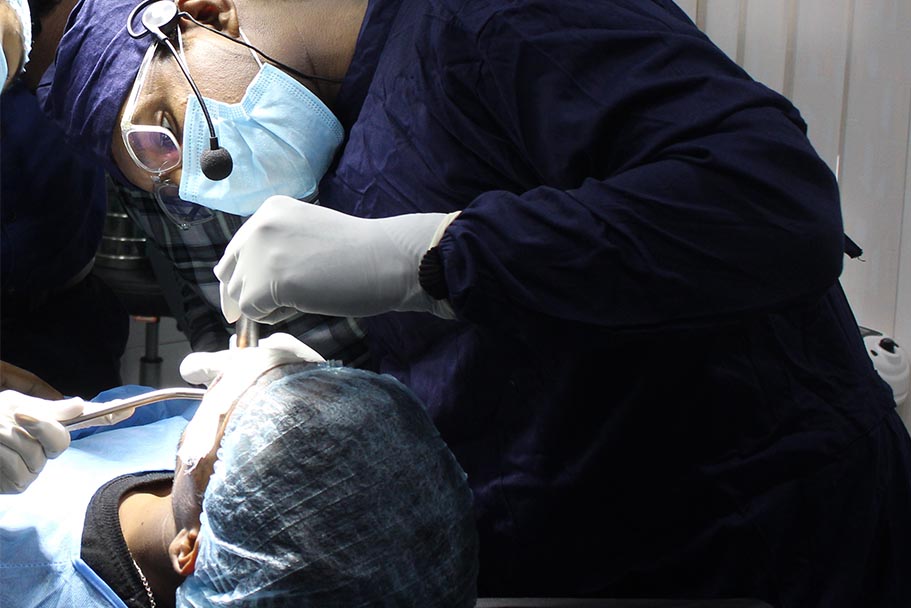ADVANCED DENTAL IMPLANTS
Dental implants are a popular and effective way to replace missing teeth. They are artificial tooth roots made of biocompatible materials like titanium that are surgically placed into the jawbone to support replacement teeth or dental crowns. This procedure has become a standard treatment option for people who have lost teeth due to various reasons such as injury, decay, or periodontal disease.

1.Expertise and Specialization:
Comprehensive Training: Maxillofacial surgeons undergo extensive education and training, which includes dental school, medical school, and specialized residency programs. This dual training equips them to address both the medical and dental aspects of maxillofacial conditions.
2.Board Certification:
Surgeons in this field often obtain board certification from organizations like the Association of Oral and Maxillofacial Surgeons of India(AOMSI). This certification signifies a high level of expertise and commitment to the field.
3.Areas of Expertise:
- Orthognathic Surgery: This involves correcting skeletal irregularities of the jaw and face, which may be causing issues with bite, speech, or facial appearance.
- Trauma and Facial Reconstruction: Maxillofacial surgeons are skilled in treating complex facial injuries resulting from accidents, falls, or other traumatic events. They use advanced techniques to reconstruct damaged tissues.
- Cleft Lip and Palate Repair: Maxillofacial surgeons play a vital role in the comprehensive care of individuals born with cleft lip and palate conditions, performing surgeries to improve both function and appearance.
- Tumor and Pathology Surgery: They are trained to diagnose and treat benign and malignant tumors affecting the head and neck region. This may involve removing tumors and performing reconstructive procedures.
- Temporomandibular Joint (TMJ) Disorders: Surgeons can address conditions affecting the TMJ, which can cause jaw pain, headaches, and difficulty in jaw movement.
- Facial Cosmetic Surgery: This can include procedures like rhinoplasty (nose surgery), genioplasty (chin surgery), and procedures to enhance facial aesthetics.
- Dental Implant Surgery: Maxillofacial surgeons are often involved in complex dental implant procedures, especially in cases where bone grafting or sinus lifts are needed.
- Sleep Apnea Surgery: Some maxillofacial surgeons specialize in surgical treatments for sleep apnea, which may involve procedures to reposition the jaw or remove obstructions.
- 3D Imaging and Planning: Advanced imaging techniques, like cone-beam computed tomography (CBCT) and 3D scanning, allow for precise planning and execution of surgical procedures.
- Computer-Aided Surgery: Utilizing computer-guided systems, surgeons can perform highly accurate and minimally invasive procedures. Microsurgery: In cases requiring intricate reconstruction, microsurgical techniques are employed, using specialized instruments and microscopes for precision.
- Multidisciplinary Approach: Maxillofacial surgery often involves collaboration with other medical and dental specialists, such as orthodontists, otolaryngologists, oncologists, and plastic surgeons. This multidisciplinary approach ensures comprehensive care for patients with complex conditions.
